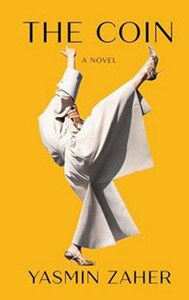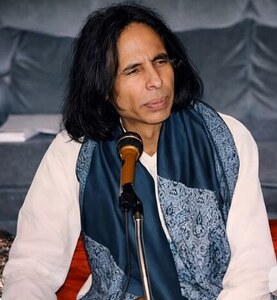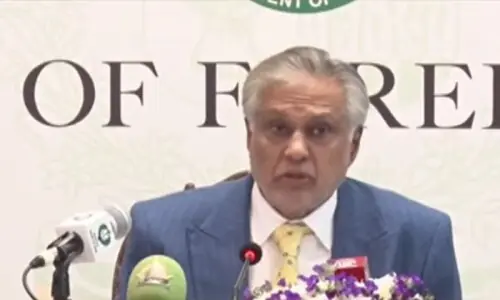A. R. Rahman: The Spirit of Music, is the latest work by Nasreen Munni Kabir, whose main area of expertise lies in chronicling the Indian cinema in the form of documentaries and books. With subjects as varied as Guru Dutt to Shah Rukh Khan to Lata Mangeshkar, all brilliant in their own right, it makes sense that Kabir chose Rahman as the focus for her latest work. This gifted music composer has changed the very dynamics of the Indian film music and it was only when this “Mozart of Madras” arrived that the monotony and predictability was broken and a fresh and innovative sound was heard. Indeed, when the history of Indian film music is written a hundred or so years from now, eras will be divided as B.R. and A.R. — Before Rahman and After Rahman.
With more than 150 million copies of his work sold worldwide and two Oscars, Rahman’s body of work is unparalleled. The Time magazine said that “his songs were recognisably Indian but paraded a world of musical influences, from raga to reggae, from Broadway to Ennio Morricone, with each tune heightening the film’s drama.”
Roja, Rahman’s first foray as music composer for a film, fetched him the India National Award for best music composer, the first ever given to a debut. His fame reached worldwide when in 2001, the legendary composer and theatrical producer Andrew Lloyd Weber asked Rahman to compose for his musical, Bombay Dreams, which premiered at London’s West End and New York’s Broadway. And then in 2008, he achieved the unachievable, that which is aspired to by many Indians (even the likes of Aamir Khan who famously looks down upon local awards) — the Academy Award. Rahman bagged two awards, for Best Score and Best Song for the film Slumdog Millionaire as well as two Grammys, a Golden Globe and a Bafta.
From the book, which is in a Q&A format, we glean that music has been passed down to Rahman through three generations. His paternal grandfather was a bhajan singer in a temple in Mylapore in South Chennai. His father, R. K. Sekhar, was a prolific composer, arranger and conductor in the Malayalam music industry. His father’s illness and subsequent death led a young Rahman to support his family and he started playing the keyboard for music directors in the South and then upgraded to a session musician. After 11 years of slogging it out as a session musician, Rahman changed gears started composing jingles for advertisements which was not only more lucrative but gave him more creative freedom.
For music aficionados, Rahman discusses at length the musical influences in his major film works, such as Rangeela, Guru, Delhi 6, Rang De Basanti, and his symbiotic relationship with some directors and lyricists in the Hindi and South film industries. The dominating influence of his mother in nearly every aspect of his life, along with increasing religiosity, makes him come across as a rather typical person in whom both these aspects play a major part.
After finishing the short book (a mere 114 pages), which is interspersed with personal photos, concert shots and an extensive discography, one is left hankering for more about Rahman and the stories and anecdotes that make him the man he is. For that side of the brilliant composer, I would recommend A. R. Rahman, The Musical Storm by Kamini Mathai, which is a well-researched biography. Mathai speaks with singers, directors, producers, old friends, relatives, colleagues, tea-boys and secretaries from which emerges a richer and a more nuanced picture. The book has quotes from disgruntled former band members who are critical of Rahman dumping them and opting for a more lucrative film career, veteran singers who disapprove of the composer using new singers with atrocious pronunciation and who hanker fondly for the old masters.
A balanced biography, The Musical Storm takes nothing away from the genius and only makes him more human. The Spirit of Music, on the other hand, only provides us with Rahman’s version of events, which seem rather sanitised, and thus is a dull read in comparison.
The reviewer is a staffer at the monthly Herald
A. R. Rahman: The Spirit of Music (MUSIC) By Nasreen Munni Kabir Om Books International, India ISBN 9380070144 215pp. Rs995































